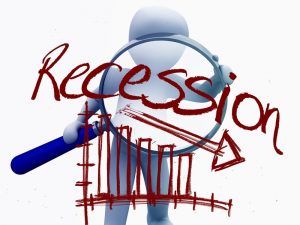Some economists are fuming about the U.S. Federal Reserve’s response to inflation, which they told CNBC has been so ineffective that it may contribute to recession.
The gross domestic product (GDP) is looking to a second consecutive quarter of negative growth, and the two-year bond yield is at its highest since 2007, putting economists on edge. Many are frustrated that the Fed’s interest rate increase hasn't been aggressive enough, and others thought it waited too long to act. The Fed's relaxed approach to inflation was initially unsatisfactory, says Lewis Black, Chief Executive Officer of Almonty Industries. But now, he adds, in order to keep from catastrophe, they'll have to raise rates to the high single digits.
According to Quincy Krosby, Chief Equity Strategist at LPL Financial, the Fed should have seen inflation coming. While the "man in the street" may not have been able to predict such a huge economic event, Krosby notes that experts and central bankers should be held accountable for missing data points. Black also blames the federal government for ignoring the signs as they prioritized dealing with COVID-19 over the economy. He adds that a recession should be avoided at any cost, even if that means serious rate hikes.
Additionally, some economists are frustrated that they are essentially waiting for the Fed to come “to the rescue,” says Mitchell Goldberg, President of ClientFirst Strategy. However, despite frustrations, the general public should remain optimistic, he says. He cites the strength and durability of the market throughout history as reasons to look towards a brighter future, even if tensions are high at the moment.
"Every new bear market and recession seems like the worst one ever in history and that things will never be good again," Goldberg told CNBC. "Then we climb out of each one with a new set of stock market winners and a new set of winning sectors in the economy."




















